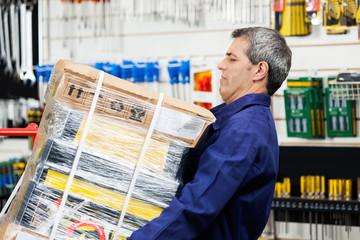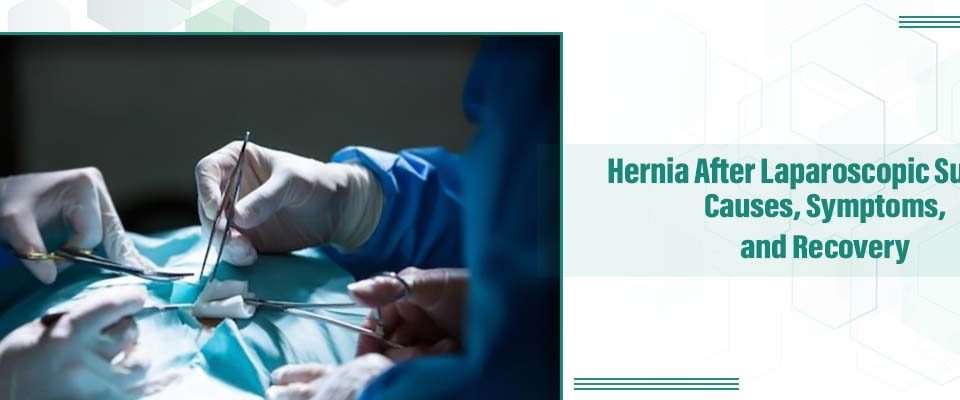Navigating the aftermath of a laparoscopic surgery, only to encounter a hernia, can be an unexpected challenge. As you get better from one surgery, you might wonder why a hernia is appearing and what you can do about it. You may have questions about what causes it, its symptoms, and how to deal with it
“A hernia is a condition where an internal organ or tissue pushes through a weakened area of muscle or connective tissue, often forming a visible bulge under the skin,” explains Dr. Harsh Sheth.
Can Hernia Occur After Laparoscopic Surgery?
Hernias can indeed occur after laparoscopic surgery, and they can pose unexpected challenges for patients on the road to recovery. Dr. Harsh Sheth, a distinguished bariatric surgeon in Mumbai, renowned for his expertise in addressing hernia after laparoscopic surgery. With a wealth of experience and a commitment to patient care, Dr. Sheth offers hope for those facing this intricate situation. His extensive knowledge unravels the complexities of hernia after laparoscopy and provides tailored solutions that align with each individual’s needs.
In this blog, we delve into the nuances of hernias that can surface after laparoscopic procedures. Dr. Sheth’s insights shed light on the possible reasons behind their occurrence, the symptoms to watch for, and the range of effective strategies for management.

Hernia After Laparoscopic Surgery – Causes
Hernias that occur after laparoscopic surgery can be attributed to several factors:
Surgical Site Weakness: The incision sites made during laparoscopic surgery can become weak as time goes on, and this can cause a hernia to form.
Inadequate Closure: If the incision site or fascial layers are not adequately closed after the surgery, it can result in a weakened area susceptible to herniation.
Inadequate Healing: Factors affecting tissue healing, such as underlying medical conditions like diabetes, chronic coughing, or compromised immune function, can influence hernia formation. Individual factors like obesity, poor nutrition, smoking, etc can also compromise tissue healing.
Increased Abdominal Pressure: Activities that raise intra-abdominal pressure, such as heavy lifting, can strain weakened areas and trigger hernias.
Mesh Complications: If a surgical mesh is used during the initial laparoscopic procedure, complications related to the mesh, such as migration or adhesion, can lead to hernias.
Tissue Trauma: The manipulation of tissues during laparoscopic procedures can cause tissue damage, making the area prone to herniation.
Scar Tissue Formation: Scar tissue can disrupt the normal tissue structure, making it easier for a hernia to develop.
Postoperative Infection: Infection at the surgical site can weaken tissues and hinder proper healing, potentially resulting in a hernia.
Genetic Predisposition: Some individuals may have a genetic predisposition to developing hernias due to weaker connective tissues.

It’s important to note that while laparoscopic surgery minimizes the risk of hernias, they can still occur due to various factors.
Consulting with a medical professional like Dr. Harsh Sheth can help identify and address these risk factors and provide strategies for prevention and management.
With over 10 years of advanced laparoscopic and bariatric surgery, Dr. Sheth is known to many as the best bariatric surgeon in Mumbai.
Hernia After Laparoscopic Surgery – Signs and Symptoms
Hernias that emerge after laparoscopic surgery can manifest through various signs and symptoms:
- A noticeable lump or bulge near the surgical site, especially when standing, coughing, or straining.
- Discomfort, pain, or aching at the incision site or surrounding area, often worsening with movement or strain.
- Pain intensifying during activities like lifting, bending, or coughing indicates stress on the herniated area.
- A sensation of burning, pressure, or heaviness at the hernia site.
- Digestive discomfort, bloating, or changes in bowel movements due to the hernia’s impact on nearby structures.
- In severe cases, a hernia can lead to gastrointestinal distress, potentially causing nausea and vomiting.
- Limited range of motion or discomfort while moving, particularly at the hernia site.
- Alterations in the appearance of the surgical site, such as redness, swelling, or tenderness.
- Symptoms may start mildly and gradually worsen as the hernia enlarges or becomes more symptomatic.
- A feeling of pressure or fullness, especially when standing or during physical activities.

“Prompt attention to these signs and symptoms is crucial in preventing potential complications and ensuring your well-being,” advises Dr. Harsh Sheth, a highly skilled gastrointestinal surgeon in Mumbai.
Hernia After Laparoscopic Surgery – Causes
Risk factors that can influence the likelihood of hernia occurrence include:

- Age: Older individuals might have a higher risk due to the natural weakening of tissues.
Obesity: Excess weight can strain incision sites, increasing the risk. - Tobacco Use: Smoking can hinder tissue healing and raise the risk.
- Infection: Postoperative infections can weaken tissues, contributing to hernia development.
- Genetics: A family history of hernias or connective tissue disorders can heighten risk.
- Poor Nutrition: Inadequate nutrition can impair tissue healing.
- Heavy Lifting: Engaging in heavy lifting or strenuous activities prematurely after surgery.
- Chronic Coughing: Conditions like chronic coughing can stress incision sites.
- Previous Hernia: Having a history of hernia increases the risk of recurrence.
- Underlying Medical Conditions: Conditions affecting tissue strength, such as diabetes or collagen disorders, can influence risk.
Consulting a medical professional like Dr. Harsh Sheth can offer personalized insights into your specific risk profile and appropriate preventative measures.
Treatment Options for Hernia After Laparoscopic Surgery
Risk factors that can influence the likelihood of hernia occurrence include:

Observation:
Small, asymptomatic hernias may be monitored under medical supervision, especially if they aren’t causing discomfort or complications.
Lifestyle Modifications:
Avoiding heavy lifting, straining, and activities that stress the abdominal area can prevent hernia progression.
Supportive Measures:
Wearing a hernia support belt or support garment might provide temporary relief by reducing discomfort and containing the hernia by preventing further protrusion.
Medications:
Over-the-counter pain relievers can help manage pain and discomfort associated with the hernia.
Minimally Invasive Repair:
Laparoscopic hernia repair, such as laparoscopic inguinal hernia repair, involves using small incisions and inserting mesh to reinforce the weakened area. A laparoscopic inguinal hernia repair recovery is quicker with less postoperative pain.
Open Surgical Repair:
Traditional open surgery might be necessary for more extensive or complex hernias to repair the hernia and place mesh for reinforcement.
Robotic-Assisted Repair:
Robotic surgery can enhance precision for repairing hernias, often resulting in quicker recovery times.
Mesh Selection:
Surgeons may choose from various mesh materials and techniques based on the specific hernia and patient factors.
Individualized Approach:
Treatment choice depends on hernia size, location, patient health, and surgeon preference, with decisions tailored to each case.
Please consult with expert hernia surgeon Dr. Harsh Sheth to determine the most suitable treatment strategy based on your unique situation, ensuring effective hernia management and optimal recovery.
Dr. Sheth is among the leading medical specialists for people seeking laparoscopic and bariatric surgery in Mumbai.
Conclusion
Risk factors that can influence the likelihood of hernia occurrence include:
The occurrence of hernias after laparoscopic surgery is not uncommon, albeit widely based on factors such as the type of surgery, patient characteristics, and postoperative care. Early intervention, awareness, and personalized care ensure that hernias need not overshadow the path to recovery.
Remember, each step taken towards understanding and managing hernias after laparoscopic surgery is a step closer to renewed well-being and vitality.

FAQ
Q.1 Can hernias after laparoscopic surgery be treated without surgery?
A. Hernias after laparoscopic surgery may be managed without surgery in some cases, depending on factors like size and symptoms.
Q.2 Can hernias after laparoscopic surgery recur?
Q.3 Are hernias after laparoscopic surgery common?
A. While not extremely common, hernias after laparoscopic surgery can occur, emphasizing the need for postoperative vigilance.

